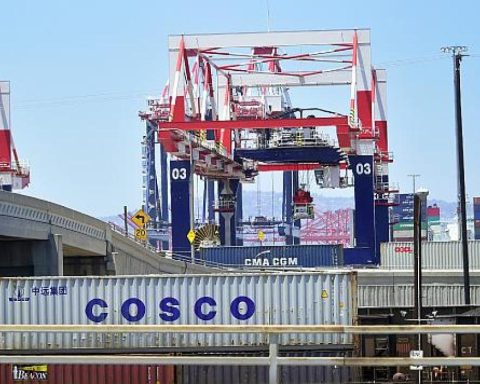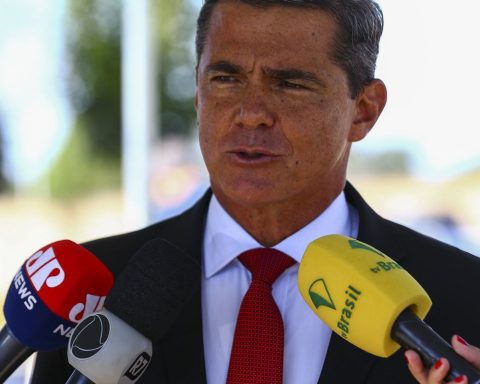Move towards a tax model that eliminates the complexities of the system, through structural reforms, the modernization of its technological platforms and equipment, and the strengthening of tax culture and education. These are some of Colombia’s pending tasks regarding the management of its taxes.
This was made clear by the director of Dian, Jairo Orlando Villabona, during the entity’s accountability that took place this Tuesday -November 26- and where figures were recalled such as that smuggling costs the country more than $7 billion per year. year and it was noted that although improvement is recognized in this matter, there is still much to do.
Read here: The United Kingdom will once again ask Colombians for visas, after two years of exception
One of the first points addressed by Villabona in his interventions was what the official called a complex and high-spending tax system, mainly due to exemptions and benefits that, from their perspective, reduce Colombia’s competitiveness and must be reviewed urgently.
“Our country’s (tax) spending is the highest in America. On average, for the countries of America, it is more or less 3.5% of GDP and ours, according to ECLAC figures, was close to 7.2%, well above peers in the region. . Why’s that? Because we have 294 tax benefits in the Code. “That’s a lot,” he said.
Jairo Villabona, director of the Dian
Courtesy – Dian
In this sense, he was emphatic that a large part of these benefits They do not have a rigorous study regarding their cost-benefit relationship, which results in a model in which there is no complete certainty about how much they really impact the dynamics of growth and competitiveness for Colombia.
“They have not been granted with ex-ante and ex-post analyses. When a tax benefit is given, whether for non-constitutive income, for promotion, for discount, for whatever, it must be given with a well-founded reason. If the State is not going to have that income, I have to demonstrate that the benefit I am giving to society is superior to the collection that I am failing to make,” he stated.
That said, he added that the country needs a structural reform of its tax policy, given that the constant issuance of partial tax reforms and financing laws has resulted in temporary solutions. for liquidity problems, instead of addressing the root of the scourges that afflict the economy.
More news: Cementos Argos’ plans after selling its stake in Summit Materials
“It has gone through the lobbying that has always been done, the political lobby that has existed in our country, that has undermined our tax system of all these benefits. “Here the solution would be a structural reform of this, but we see that every year, every two years, we are making reforms or financing laws, it does not matter what name we give them, but they are not funding solutions, only temporary solutions are given,” held.
Despite these needs, the Director of the Dian regretted the absence of will policy to implement a comprehensive reform that allows solving structural problems and guaranteeing long-term fiscal sustainability and made it clear that this is an issue that goes beyond the economic and impacts the social.

The jobs that the DIAN will provide
DIAN
“What this does is cause us to have the problems we have. We have health, education, and infrastructure problems; We have many underlying problems in the country that we do not solve because we do not generate enough revenue and we do not generate them because of everything we have mentioned,” he said.
Economic rhythm
Another of the sections that caught attention in everything said by Villabona Robayo had to do with a point that the market in general and analysts have warned, even since 2023, about the consequences that it was going to have. the slowdown in tax collection, since it recognizes that this actually happened.
“The behavior of the economy has not helped much in the sectors that most benefit us. The sectors that have progressed the most have been the agricultural sector and public administration, but sectors as important as commerce and industry have not grown as much as they should,” he assured.
For reading: Low productivity and informality would limit the increase in the minimum wage by 2025
To this we must add that, said by the Director of the Dian, Colombia’s external debt has grown significantly in recent years, with an increase of more than $200 billion in just two years, a situation that has generated new limitations for the economy and attention to social needs.
This growth has led to a large part of the resources collected by the DIAN being used to pay said debt, limiting the country’s ability to invest in strategic areas such as health, education and infrastructure. In addition, the Fuel Price Stabilization Fund has required close to 40 billion pesos to cover its deficits, which adds pressure to the national budget.

Colombian pesos.
iStock
“A large part of what we raise is used to pay that debt. And the Fuel Stabilization Fund too. There have been close to $40 billion that we have had to allocate to solve these problems. Regarding collection, I believe that we have met the management goal that we have presented and that they have done so very judiciously the areas of inspection, taxes, and the other divisions of the Dian,” he emphasized.
Technological modernization
During the accountability, Dian also reported that the technological modernization of the entity is another of the fronts that it is working on at this time, especially to strengthen strategies such as electronic invoicing, although she highlighted that here it is important that companies in the country keep collaborating.
“Technological modernization and information are going to help us a lot. Such simple tools that we are looking for. For example, sometimes we are not sure that everything is being billed in an establishment, so what we do is rely on technology to cover all sources of information,” explained Villabona.

Jairo Villabona, director of the Dian
This is why they are working on agreements with payment methods companies to cross-check electronic transaction data with the invoicing of businesses and thus identify irregularities and detect businesses that are not declaring all their sales, improving efficiency in tax control through tools. digital.
Finally, the Director of the Dian assured that a lot of work must be done to generate citizen awareness about the importance of requiring electronic invoices to guarantee that tax resources are used in education, health and other public services, as well as understanding that taxes are the engine of the development of countries.


















